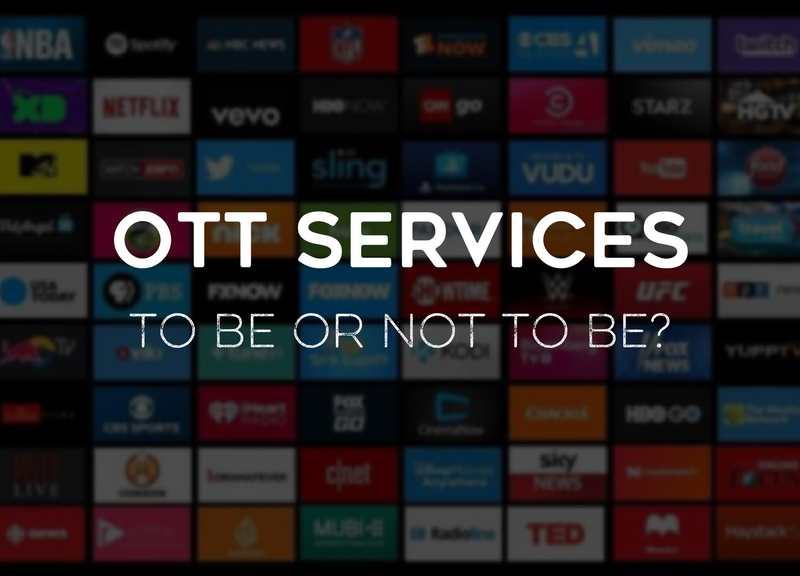Over-the-top services (or OTTs) include all those apps that we love and use to communicate in new and exciting ways. EU decision-makers have mixed feelings about them, however. While some want OTT to be regulated as telecoms services, others believe the disruption of traditional markets brings more choice for users, new business models for companies, and more competition to the market. Recently, expert research findings and a letter from 7 EU countries have called for less government intervention and more market-driven approach, promoting ambition as the prime driver of success.
While it is not easy to define an OTTs, we all use and love them, for streaming (Netflix, Apple TV, Xbox 360 or World of Warcraft). The benefits of OTT communications tools like Facetime, Whatsapp or Facebook Messenger are best known, but competition – and innovation – are fierce and other players are entering and conquering world-wide markets (take a look at quickcall.com or Line).
The nature of OTTs is mixed: the services are delivered over the internet by using a broadband connection, operated by network providers. New meets old, both helping to make the market. In fact, traditional distributors play an important role in the growth of OTTs and grow their own data market (Video was the main driver of 21% annual growth in US data traffic in 2014)[1]. It is this symbiosis that has sparked the recent debate over how OTT services should be regulated.
Nowadays more than a few rules[2] that would expand telecoms regime to non-traditional communication services are under discussion, even if OTTs look nothing like traditional services:
- OTTs are different from each other: some depend on identification numbers, some do not, and not all control the content transmitted over the network;
- OTT providers tend to be SMEs or start-up businesses. They are easy to set-up, agile, and rely heavily on the availability of open source tools. Telecoms operators or service providers are typically multinational companies or even former national monopolies with endless resources but a more deliberate business approach;
- As much as apps and software, OTTs enable almost full multi-homing that neutralises any lock-in effect. Most service users also use a competing app from the same category. In fact, it is common for end-users to download at least three or four messaging or video-calls services on their phones[3].
The OTTs market is thriving; revenues are increasing (in the US, online TV services’ revenues in 2010 were up to 59%, with forecasts see international markets catching-up and US adjusting to 37% in 2020[4]), and consumer satisfaction is on the rise, According to a Nielsen survey (2014), over 80% of viewers uses smartphones or tablets while watching television, for instance to discuss a particular program with friends (29%) or reading comments about the program on social media (18%), but they also consume many other OTT services.
When it comes to communicating, the best is yet to come. According to a recent report “Redesigning e-communication services”[5], the EU market is evolving at a breath-taking speed and can develop further as long as it does not get overburdened with regulation. In fact, regulatory or standard requirements, made for regular communications or e-communications services, would represent a heavy load especially for small vital digital companies. Seven EU countries are on the same page, arguing that subjecting OTTs to telecoms rules would “risk creating uncertainty, harming investment incentives, raising costs, stifling innovation and increasing red tape especially for smaller service providers.” Along with them, more than 80% of developers worldwide call for less government intervention and ask for market driven approach[6].
“Helping by doing less instead of more” it is a leitmotif in the digital space.
[1] DG IPOL research “Over-the-Top (OTTs) players”, 2015
[2] Concerning telecoms, privacy and consumer issues;
[3] Reforming e-communications services: a critical assessment
[4] Global Online TV & Video Revenue Forecasts report in DG IPOL research “Over-the-Top (OTTs) players”, 2015
[5] Reforming e-communications services: a critical assessment
[6] https://www.appdevelopersalliance.org/competition-app-ecosystem-report



